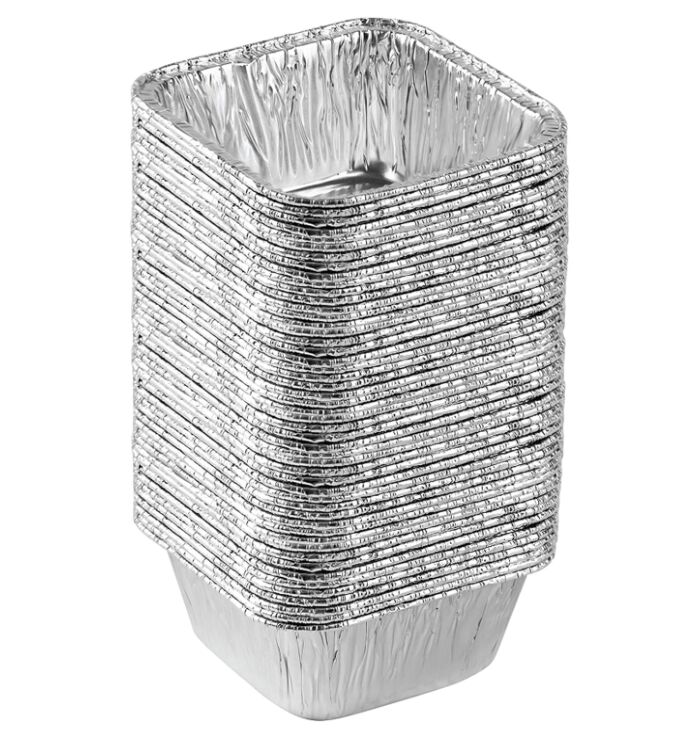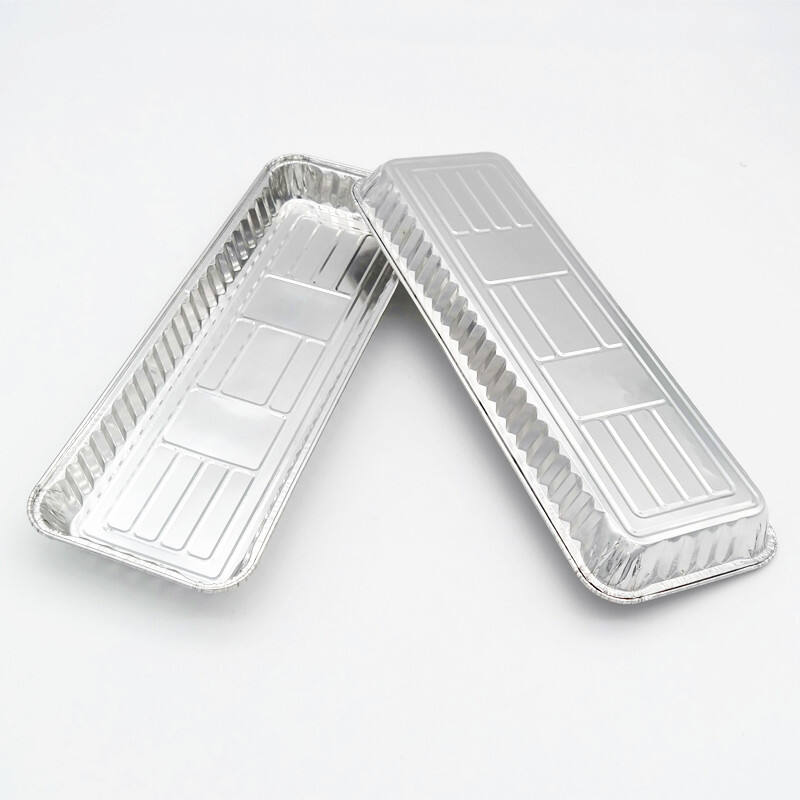Understanding the Safety of Metal Containers in Kitchen Appliances
The use of aluminum foil containers has become increasingly common in modern kitchens, offering convenience for food storage, cooking, and reheating. However, many home cooks and food enthusiasts remain uncertain about their safety, particularly when it comes to microwave and freezer applications. This comprehensive guide will explore the facts, dispel common myths, and provide clear guidance on how to safely use aluminum foil containers in various kitchen scenarios.
As we navigate through daily meal preparation and food storage needs, understanding the proper use of aluminum foil containers becomes essential for both safety and convenience. These versatile containers have revolutionized food storage and heating solutions, but their appropriate use requires specific knowledge and considerations.
The Science Behind Aluminum Foil Containers
Material Composition and Properties
Aluminum foil containers are manufactured from high-grade aluminum that undergoes specific treatment processes to ensure food-grade quality. The material is typically between 0.02-0.04 millimeters thick, providing both durability and flexibility. The aluminum used in these containers is designed to withstand various temperature conditions while maintaining its structural integrity.
The unique molecular structure of aluminum allows it to be an excellent conductor of heat while remaining lightweight and resistant to corrosion. This makes aluminum foil containers particularly suitable for both hot and cold temperature applications, though specific guidelines must be followed for safe usage.
Food Safety Standards
Modern aluminum foil containers are manufactured under strict quality control measures to meet international food safety standards. The material undergoes rigorous testing to ensure it doesn't leach harmful substances into food, especially when exposed to extreme temperatures. These containers are designed to maintain food quality while preventing contamination and preserving freshness.
Regulatory bodies worldwide have established specific guidelines for food-grade aluminum, ensuring that containers meet safety requirements for both commercial and household use. This includes standards for metal thickness, purity levels, and coating specifications when applicable.

Microwave Safety Guidelines
Proper Usage in Microwaves
When it comes to microwave use, aluminum foil containers require careful consideration. While conventional wisdom often warns against any metal in microwaves, the reality is more nuanced. Empty aluminum foil containers should never be microwaved, as they can cause arcing and damage to your appliance. However, when filled with food and used properly, some aluminum foil containers can be microwave-safe under specific conditions.
For microwave heating, it's essential to check the container's labeling for microwave-safe certification. Many modern aluminum foil containers are specifically designed with special features that make them suitable for microwave use when properly filled with food.
Potential Risks and Precautions
To ensure safe microwave use of aluminum foil containers, several precautions must be observed. The container should never touch the microwave walls, and food should completely fill the container to prevent hot spots or arcing. It's recommended to maintain at least a one-inch space between the container and microwave walls.
If you're unsure about a container's microwave compatibility, it's best to transfer food to a designated microwave-safe container. This eliminates any risk of damage to your appliance or compromise to food safety.
Freezer Storage Benefits and Considerations
Temperature Resistance Properties
Aluminum foil containers excel in freezer applications due to their excellent temperature resistance properties. These containers can withstand extremely low temperatures without becoming brittle or cracking, making them ideal for long-term frozen food storage. The material's thermal conductivity also allows for quick freezing, which helps preserve food quality and minimize ice crystal formation.
The structural stability of aluminum foil containers remains consistent in freezer conditions, preventing deformation that might compromise food safety or storage efficiency. This reliability makes them particularly valuable for batch cooking and meal preparation planning.
Proper Storage Techniques
To maximize the benefits of aluminum foil containers in freezer storage, proper preparation and handling techniques are crucial. Before freezing, ensure the container is properly sealed to prevent freezer burn and maintain food quality. Some containers come with compatible lids, while others may require additional wrapping with freezer-safe materials.
When stacking containers in the freezer, maintain proper spacing to allow for air circulation and even freezing. Label containers with contents and dates to maintain organized storage and ensure timely use of frozen items.
Long-term Storage and Reusability
Durability Factors
The longevity of aluminum foil containers depends largely on their initial quality and how they're handled. Premium containers can withstand multiple uses when properly cared for, though they may show signs of wear over time. The thickness of the aluminum and the construction of the container's edges and corners play crucial roles in determining its reusability.
Regular inspection of containers for signs of damage or wear is essential for maintaining food safety standards. Look for any cracks, sharp edges, or significant deformation that might compromise the container's integrity.
Maintenance and Care
To extend the life of aluminum foil containers, proper cleaning and storage practices are essential. Hand washing with mild detergent is recommended, avoiding abrasive cleaners that might damage the surface. Ensure containers are completely dry before storing to prevent oxidation or corrosion.
Store unused containers in a clean, dry area away from extreme temperatures or humidity. Proper storage helps maintain their structural integrity and ensures they remain safe for future use.
Frequently Asked Questions
Can aluminum foil containers be recycled?
Yes, aluminum foil containers are fully recyclable, provided they are clean and free from food residue. Most recycling facilities accept these containers, making them an environmentally responsible choice for food storage and preparation.
How can I tell if an aluminum foil container is microwave-safe?
Look for specific microwave-safe labeling on the container or packaging. If no such indication exists, consult the manufacturer's guidelines or err on the side of caution by transferring food to a designated microwave-safe container.
What is the maximum temperature aluminum foil containers can withstand?
Standard aluminum foil containers can typically withstand temperatures up to 500°F (260°C) in conventional ovens. However, specific temperature limits may vary by manufacturer and container design, so it's important to check individual product specifications.


